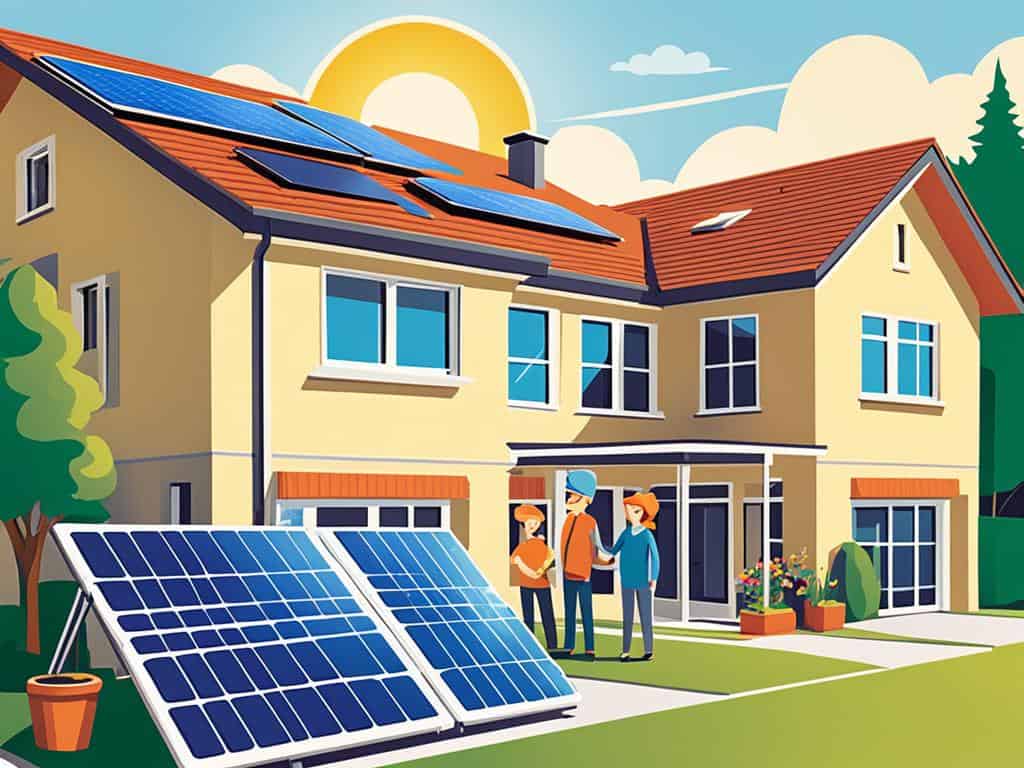A Major First Toward Guaranteeing Every Indian Household Has Access To Electricity Is The “Har Ghar Bijli” Project. This Ambitious Initiative Seeks To Accelerate Socioeconomic Development All Throughout The Nation, Empower The Unconnected Homes, And Enhance Quality Of Life. The Relevance Of The Har Ghar Bijli Project, Its Goals, And Its Effects On Several Spheres Will Be Discussed In This Paper.
Ghar Bijli: Understanding:
Review Of The Initiative:
Translated As “Power To Every Home,” “Har Ghar Bijli” Is A Government Project Meant To Power Every Indian Household. Initiated Recently, This Initiative Embodies The Government’s Dedication To Infrastructure Development, Sustainability, And Energy Accessibility.
Goals And Objectives:
The Main Goals Of The Har Ghar Bijli Campaign Consist In:
1. Universal Electricity Access: Make Sure Every Indian House Gets Consistent And Reasonably Priced Access To Electricity.
2. Sustainable Development: Encourage Sustainable Practices And Renewable Energy Sources To Help To Satisfy The Rising Energy Consumption While Reducing Environmental Effects.
3. Economic Growth: Through Energy Projects, Improve Infrastructure And Generate Employment To So Support Economic Development.
4. Improvement Of Quality Of Life: Support Education And Healthcare As Well As Lighting, Heating, And Cooling—All Of Which Depend On Electricity.
The Value Of Electric Access:
Socio-Economic Effects:
Improving Quality Of Living Depends On Access To Electricity. It Influences Many Facets Of Daily Existence, Including:
1. Education: Better Educational Possibilities Made Possible By Electricity Let Pupils Study At Night And Use Internet Resources.
2. Healthcare: Reliable Electricity Assists Healthcare Facilities, Therefore Ensuring That Medical Equipment Runs As It Should And That Vaccinations Are Kept At The Correct Temperatures.
3. Economic Opportunities: Small Enterprises Can Run Efficiently With Power, Therefore Boosting Output And Income Production.
4. Women Empowerment: Access To Electricity Can Free Women’s Time So They May Pursue School, Work, Or Engage In Creative Projects.
Benefits From The Environment:
Additionally Stressing The Need Of Sustainability Is The Har Ghar Bijli Project. The Initiative Seeks To Lessen Reliance On Fossil Fuels And Minimize Greenhouse Gas Emissions By Supporting Renewable Energy Sources, Therefore Helping To Create A Cleaner Environment.
Application Techniques:
Infrastructure Building:
Effective Application Of The Har Ghar Bijli Project Depends Mostly On Building Strong Infrastructure. This Includes:
1. Expansion Of Power Grids: Expanding Current Electricity Lines To Access Underprivileged And Far-Off Locations Is Known As Extending Power Grids.
2. Decentralized Power Generation: Encouragement Of Off-Grid And Distributed Power Solutions Including Solar Panels Will Help To Supply Electricity In Areas Where It Is Not Possible To Extend The Grid.
3. Smart Metering: Using Smart Meters Will Help To Improve Billing Procedures And Energy Management, So Guaranteeing Openness And Efficiency.
Government Support:
The Indian Government Has Launched Several Policies And Projects Meant To Assist The Har Ghar Bijli Effort, Including:
1. Subsidies And Financial Aid: Providing Low-Income Homes With Financial Aid And Subsidies For Renewable Energy Installations And Electrical Connections.
2. Partnerships With Private Sector: Working With Private Sector Partners Will Help To Improve Investment In Energy Infrastructure And Technological Advancement.
3. Skill Development: Training Local Communities In Renewable Energy Technologies And Maintenance Will Help Them To Develop Their Skills, Therefore Generating Employment And Encouraging Sustainable Behaviors.
Obstacles To Resolve:
Though The Har Ghar Bijli Project Has High Aspirations, Some Difficulties Still Exist:
Limits On Infrastructure:
The Current Infrastructure In Rural Areas Might Not Be Able To Support The Fast Increase Of Energy Availability. Building New Power Lines Calls Both Significant Planning And Financial Outlay.
Financial Restrictions:
Even With Subsidies, Many Homes Lack The Means To Afford Power Connections. Widespread Adoption Depends On Guarantees Of Price Along With Service Quality.
Consciousness And Instruction:
Communities Might Not Understand Completely The Advantages Of Having Access To Power. Awareness Campaigns And Education Programs Help Neighbors Understand The Benefits Of Using Renewable Energy Sources And Connecting To The Power Grid.
Coordination Of Policy:
Successful Application Of The Har Ghar Bijli Project Depends On Efficient Cooperation Across Several Government Departments And Entities. Effectiveness Of The Program Can Be Improved By Means Of Process Simplification And Policy Alignment Assurance.
Effect On Rural Energy:
Triumph Stories:
Already, The Har Ghar Bijli Project Has Produced Several Successful Examples All Throughout India. The Presence Of Electricity Has Brought About Changes In Many Villages’ Living Circumstances. These Narratives Show How Better Access To Power Has Raised Standards Of Living, Education, And Medical Results.
Case Illustrations:
1. Hamlet A: The Addition Of Power In This Hamlet Has Resulted In The Founding Of A Local School So That Kids May Study After Dusk. Little Enterprises Also Started To Flourish In The Village, Therefore Supporting The Local Economy.
2. Village B: Access To Power Enabled A Healthcare Facility To Offer 24/7 Services, Therefore Improving The Quality Of Life And Drastically Lowering The Mortality Rates.
Prospective Viewpoint:
Plans Of Development:
Future Plans Call For When The Har Ghar Bijli Effort Expands:
1. Scaling Up Renewable Energy: Investing More In Solar, Wind, And Other Renewable Energy Sources Can Help To Guarantee A Dependable And Sustainable Power Source.
2. Smart Grids: Creating Smart Grids That Combine Cutting-Edge Technologies For Effective Energy Distribution And Management Would Help To Address 2.
3. Community Engagement: Encouragement Of Local Communities To Take Part In Decision-Making Concerning Energy Consumption And Management Helps To Engage Them.
Ultimately:
The Har Ghar Bijli Project Is An Enormous Attempt To Run Every Indian Family On Electricity. The Initiative Seeks To Empower Communities And Promote Sustainable Development By Tackling The Socioeconomic And Environmental Elements Of Energy Availability. Although Obstacles Still Exist, The Continuous Government Dedication And Local Community Involvement Will Be Absolutely Vital To Reach The Objectives Of The Initiative. India May Expect A Better, More Sustainable Future For Every One Of Its People By Means Of Consistent Power.

